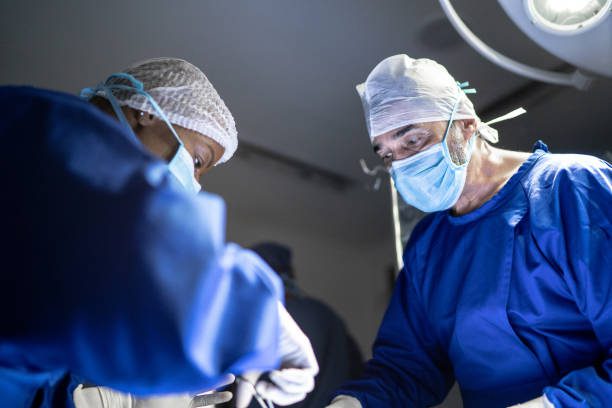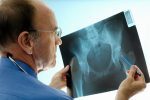| Cardiovascular Surgeon Key Stats | |
|---|---|
| Education | 4+ Years |
| Job Outlook | 1% |
Cardiovascular Surgeons are specialized doctors that are highly experienced in performing surgeries and operations to the cardiovascular system, including the heart or blood vessels.
Their role in repairing heart and blood vessels comes after a patient receives a diagnosis from another heart specialist such as a Cardiologist.
And their work continues after completing a successful surgery to assure that a patient’s health is improving.
Individuals who want to become a Cardiovascular Surgeon will need an extensive educational background, training and personal characteristics that will help them enter this profession.
Go to Page Section:
Education Requirements to Become a Cardiovascular Surgeon
Individuals who would like to take the effort to become a Cardiovascular Surgeon will need several years of education and training, certain personal characteristics and qualities and licensure in order to enter this profession.
Helpful characteristics that may help individuals become a Cardiovascular Surgeon include: being detail oriented, being dexterous with their hands, communication skills, patience and having physical stamina.
These characteristic will help Cardiovascular Surgeons to handle the stresses of working under pressure and performing lifesaving surgery needing a strong focus and attention to detail.
Individuals just beginning their postsecondary career to become a Cardiovascular Surgeon will need to complete a bachelor’s degree in a science related field.
Individuals must make sure to complete a strong track in a variety of classes including: physics, chemistry, biology, English and mathematics.
Individuals may also opt to volunteer in a health care setting to gain exposure in a health care related setting.
Once finished with their undergraduate career, individuals must then take the Medical College Admission Test MCAT to begin applying for medical schools.
Once enrolled in medical school to earn a degree as a Medical Doctor (M.D.), individuals will complete a comprehensive track that will include learning about general medicine under a classroom and laboratory setting for the first two years.
For the second half of medical school, individuals will move on to practicing in a hands environment and may work under the supervision of a licensed physician.
Individuals working towards becoming a Cardiovascular Surgeon will then need to become licensed in order to practice medicine.
After this step, another 4 to 5 years of practice in a general surgery residency is required.
After the residency is completed, individuals must then complete at least two years as a cardiac surgery resident or complete a fellowship.
The training in cardiac surgery will prepare individuals to gain the acumen to perform surgical procedures.
After the two year cardiac residency or fellowship program, individuals may then take an exam provided by the American Board of Thoracic Surgery to become board certified.
You may visit their website at MCAT to learn more information in regards to certification and becoming a Cardiovascular Surgeon.
Cardiovascular Surgeon Job Description
With the assistance of other health care professionals, such as perfusionists and Cardiovascular Anesthesiologists, Cardiovascular Surgeons will perform lifesaving procedures for patients experiencing cardiovascular health problems.
The following are some common procedures and surgeries that Cardiovascular Surgeons normally perform on their patients:
- Heart transplants
- Trans myocardial laser revascularization
- Aneurism repair
- Coronary artery bypass
- Heart defect repair
- Heart valve repair and replacement
- Operate heart vessels
- Operate individuals’ aortas
- Implant ventricular assist devices (VADs) which are used to help pump an individual’s blood
Cardiovascular Surgeons work under extreme pressure to complete surgeries on time and with precision.
Cardiovascular Surgeon Salary and Career Path
Along with the hard work and long hours involved, individuals who want to become a Cardiovascular Surgeon can also expect some of the highest wages amongst all professions.
The median annual wage for General surgeons, which includes Cardiovascular Surgeons, was approximately $367,885 in 2012.
Exact wages will depend on a variety of factors including geographical location, level of experience and surgeries performed throughout the year.
The job outlook for all Physicians and Surgeons, including Cardiovascular Surgeons, is expected to grow by approximately 18 percent through the year 2022.
This growth is attributed to a variety of factors including: health care industry expansion and the continued growth of the aging population needing health care services.
There are many benefits to becoming a Cardiovascular Surgeon including the job outlook and the income potential.
Individuals interested in this profession will need several years to succeed in this field, but their work is extremely important in improving a patient’s health.
![]() The below information is based on the 2024 BLS national averages.
The below information is based on the 2024 BLS national averages.
National Average Salary
$* Employment conditions in your area may vary.
Frequently Asked Questions
What is a cardiovascular surgeon?
Cardiovascular surgeons are specialized in operating on the heart and blood vessels to treat a variety of medical conditions.
They perform many types of surgeries, including heart valve repair, heart defect repair, aneurysm repair, and heart transplantation.
Cardiovascular surgeons work with other members of the surgical team, including anesthesiologists and perfusionists.
To be able to perform heart surgery, they need many years of training but also some personal skills, including dexterity, attention to detail and problem-solving skills.
Like all medical doctors, cardiovascular surgeons need compassion, communication skills, and good bedside manners.
This is a very demanding profession but can also be professionally and personally rewarding because it gives you the chance to save lives.
If you decide to become a cardiovascular surgeon you should be ready to work long hours and to spend many hours in the operating room.
How much does a cardiovascular surgeon make?
According to the Bureau of Labor Statistics, the median annual wage for surgeons, in general, was $255,110 as of May 2018.
Salaries in this field vary depending on a wide range of factors, including the surgeon’s level of experience, the employer and the region of employment.
How much does it cost to become a cardiovascular surgeon?
Like all physicians and surgeons, cardiovascular surgeons need many years of training.
After graduating from high school, the first step is to enroll at an undergraduate program followed by 4 years of medical school.
Undergraduate programs for out-of-state students cost, on average, around $40,000-$45,000 a year at a public college.
Four years of medical school will cost you between $150,000-$250,000 at a public institution.
So, earning your medical degree at a public college will cost you more than $300,000 in total.
After finishing med school, the next step is to complete a surgical residency and several years of training in the field of cardiac surgery.
What is the demand for cardiovascular surgeons?
According to the Bureau of Labor Statistics, overall employment of surgeons, in general, is expected to grow 1 percent from 2018 to 2028, slower than the average for all occupations.
The demand for surgeons is expected to grow but new technologies will temper this growth.
These technologies will reduce the number of hours surgeons spend in the operating room and thus they will be able to operate on more patients.
However, the fact that the population is aging will increase the demand for physician services and cardiovascular surgeons will continue to be needed to treat diseases specific to old age.
How long does it take to become a cardiovascular surgeon?
Depending on their specialty, cardiovascular surgeons may need more than 15 years of training beyond high school.
First, they have to finish four years of college and earn a bachelor’s degree.
Afterward, prospective cardiovascular surgeons must complete 4 years of medical school and 5-7 years of residency in surgery.
After finishing the surgery residency period, cardiovascular surgeons need 2-4 more years of training in cardiac surgery.
To be allowed to practice as a surgeon, you will also need a state license.














